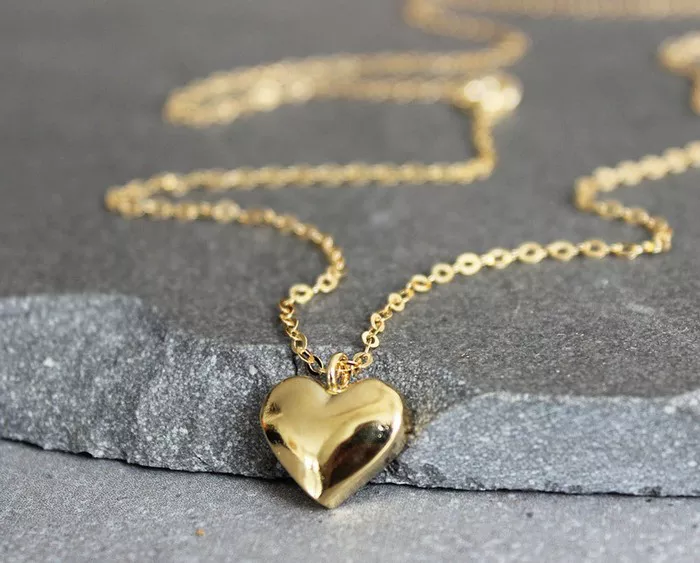Gold has been a symbol of wealth and beauty for centuries, adorning the necks, wrists, and fingers of people across the globe. However, with its popularity comes the risk of encountering counterfeit items. If you’ve recently acquired a gold pendant or are considering purchasing one, knowing how to determine its authenticity is crucial. This guide will walk you through the essential steps to ensure your gold pendant is genuine, covering physical inspection techniques, chemical tests, professional appraisals, and more.
Understanding Gold Purity and Hallmarks
Gold Purity
Gold purity is measured in karats (K), with 24K representing pure gold. However, pure gold is soft and often alloyed with other metals to enhance its durability. Common gold purities include 18K (75% gold), 14K (58.3% gold), and 10K (41.7% gold). Understanding these purities is vital as it directly impacts the value and characteristics of the gold pendant.
Hallmarks
Hallmarks are stamps on gold jewelry that indicate its purity and origin. Typical hallmarks include numbers like “750” for 18K gold or “585” for 14K gold. Additionally, hallmarks may include the manufacturer’s mark and assay office symbols. Always inspect your pendant for these stamps as an initial step in verifying its authenticity.
See Also: Everything You Need to Know About Marquise Diamond Pendant
Visual and Physical Inspection
Color and Luster
Real gold has a distinctive, rich yellow color and a unique luster that doesn’t tarnish or fade over time. If the pendant appears excessively shiny or has a different hue, it might be gold-plated or a different metal altogether.
Weight and Density
Gold is a dense metal. When you hold a genuine gold pendant, it should feel heavier than it looks. Comparing the weight of your pendant to a similarly sized gold piece can help you determine if it’s authentic. Gold-plated items or fake gold will often feel lighter.
Magnetic Test
Gold is non-magnetic. To perform this test, place a strong magnet near the pendant. If the pendant is attracted to the magnet, it’s likely not made of real gold. However, keep in mind that some counterfeit items might use non-magnetic metals to mimic gold.
Bite Test
Though not recommended due to the potential for damaging the jewelry or your teeth, the bite test is a traditional method. Real gold is soft and will show bite marks, whereas fake gold or harder metals will not.
Chemical Tests
Nitric Acid Test
The nitric acid test is a reliable method to check the authenticity of gold. When a drop of nitric acid is applied to gold, it shouldn’t react if the gold is pure or nearly pure. If the metal turns green, it indicates a base metal beneath a gold layer, while a milky reaction points to gold-plated sterling silver.
Scratch Test
The scratch test involves rubbing the gold pendant on a testing stone and applying acid to the streak left behind. Different acids are used for different purities (10K, 14K, 18K, etc.). If the streak remains, the gold is of that purity; if it disappears, the pendant is either of lower purity or fake.
Professional Appraisal
Jeweler’s Assessment
Taking your pendant to a professional jeweler is one of the most reliable ways to verify its authenticity. Jewelers have the expertise and equipment to conduct thorough tests, including electronic gold testers and X-ray fluorescence (XRF) machines, which provide a detailed analysis of the metal’s composition.
Certification
Some gold pendants come with certificates of authenticity from recognized organizations. If your pendant has such a certificate, it’s a strong indicator of its genuineness. Ensure the certificate is from a reputable source, like the Gemological Institute of America (GIA) or other well-known assay offices.
Common Misconceptions and Pitfalls
Gold-Plated vs. Solid Gold
One of the biggest misconceptions is confusing gold-plated jewelry with solid gold. Gold-plated items have a thin layer of gold over a base metal, making them look like solid gold but significantly less valuable. Always check for hallmarks and perform tests to distinguish between the two.
Inherited Jewelry
Inherited jewelry often carries sentimental value, but its authenticity may be uncertain. Even if a piece has been in the family for generations, it’s still wise to verify its gold content to understand its true value.
Online Purchases
When purchasing gold pendants online, ensure the seller is reputable and offers guarantees or returns. Be wary of deals that seem too good to be true, as they often are. Look for reviews and ratings of the seller and request certification if possible.
Additional Tips for Gold Pendant Buyers
Understanding Market Prices
Knowing the current market price of gold can help you gauge if you’re getting a fair deal. Gold prices fluctuate, so stay informed to make educated purchasing decisions.
Insuring Your Jewelry
Once you’ve verified your gold pendant’s authenticity, consider insuring it. Jewelry insurance can protect you from loss, theft, or damage, providing peace of mind for your valuable possession.
Proper Storage and Care
Real gold is durable but can still scratch or dent. Store your gold pendant in a soft cloth or a jewelry box, and avoid exposure to harsh chemicals or abrasive surfaces. Regular cleaning with mild soap and water can help maintain its luster.
Conclusion
Determining the authenticity of a gold pendant involves a combination of visual inspection, physical tests, and professional appraisal. By understanding gold purity and hallmarks, performing basic tests like the magnet and acid tests, and seeking professional advice when needed, you can confidently verify if your gold pendant is real. Whether you’re a buyer, an owner, or someone considering selling a gold pendant, these steps will help ensure that your piece is genuine and valued appropriately. Always remember, when in doubt, consult with a trusted jeweler to get an expert opinion.

